Return of the Heartbreaker: Ryan Adams discusses new album ‘Ashes & Fire’ and working alone again
Adams returns to the poignancy of his debut album
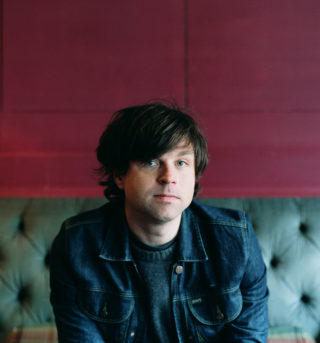
Adams returns to the poignancy of his debut album
The first time I saw Ryan Adams was in January 2004. He was touring his albums ‘Rock’N’Roll’ and ‘Love Is Hell’. He had died his hair a bright orange, looked suitably dishevelled yet exuded a ramshackle cool. Within minutes of being on stage he had knocked a full beer over. A roadie ran out and mopped it up as Adams staggered and seethed his way through ‘So Alive’. He was inebriated. I remember shouts to people stood side of stage for vodka, even proclaiming at one point, “No fucking Red-Bull this time!” As he sang ‘Sylvia Plath’ he climbed speaker stacks and hung within tangible distance, crooning and smoking hellishly.
Then he begins the majestic ‘The Shadowlands’. About half way through he vanishes from the stage and a thud echoes through the microphone like a gunshot. He has fallen off the stage and into the six-foot-plus opera pit below, severely breaking his wrist in the process. He’s helped up and back on stage and rushed off the back. The band – bemused – finish the song and say goodnight. I, like everyone else, was bewildered as I left the building, but I was also transfixed.
Fast forward seven years and I saw Ryan two months ago, solo, slightly less eventful – sober, drinking tea and quietly strumming an acoustic guitar as he sweetly sang. I was still transfixed. Ryan Adams has been an artist that has managed to succeed at either end of the spectrum.
If all is to be believed, Adams has been a magnet for trouble for most of his life. Supposedly excluded from high school for wearing a T-shirt with a picture of a melting ice cube that read Christianity is Stupid…Give Up. His first proper band, Whiskeytown, collapsed under a sea of booze-fuelled fall-outs. He has had a tumultuous relationship with the press, even leading to a disgruntled Adams leaving an angry voicemail on Chicago Sun-Times journalist Jim DeRogatis’ machine after a scathing review, which still to this day is available to the public. And he’s had many public feuds with Paul Westerberg, Jack White, and Jeff Tweedy, as well as years of drink and drug problems that had him once tell the New York Times “I snorted heroin a lot – with coke. I did speedballs every day for years. And took pills. And then drank. And I don’t mean a little bit. I always outdid everybody… It’s a miracle I did not die.”
However, Adams, once a poster boy who was labelled ‘The Kurt Cobain of Alt-Country’, an artist that everybody once loved to love, soon became an artist everybody loved to hate. A good looking man in his twenties, drenched in critical acclaim, dating movie stars (see Winona Ryder, Parker Posey), gaining celebrity fans and friends, it doesn’t take a lot to work out why some people may be resentful, bitter or plain jealous towards him. But this was coupled with some behaviour and actions people railed against, including a much discussed GAP advert he took part in. Adams has often been seemingly and simultaneously wild, angry and reactionary, yet sweet, gracious and endearing. Which means accounts and re-tellings of his past can often be as misleading and erratic as his supposed behaviour in the first place.
He has always been – shall we say – emotionally earnest in his songs: he doesn’t so much wear his heart on his sleeve as slice a part off and stick it in the album inlay for you. This has lead to equally revealing and open interviews in the past, all told with varying states of mood and detail, meaning that researching an interview for him is a little like trying to extract the real Ryan Adams from a series of impostors, especially as Adams, now clean and sober from drink, drugs and even cigarettes, is not the man he once was, by a long shot. He told Mojo in 2009 that, “I was an asshole. A total fucking prick. I fucking hated myself.” He has since married pop singer/actress Mandy Moore, moved to L.A and, as many people do at the age of 36, settled down. This has resulted in a calmer, humbler and generally quieter Ryan Adams, who has no interest in being the man of old, which means that, as I soon find, trying to get him to affirm anything resembling a remotely definitive statement can be tricky. He is clearly a man who has played the press game long enough and is cautious in his approach, something that is made all the more apparent when we compare how he charmingly jokes on our photo shoot (his greeting: “Excuse the right side of my face. I’ve slept on it for years so now I look like an old fish, washed up on a sea of despair… or an old Rick Moranis”), only to clam up somewhat once the Dictaphone is rolling.
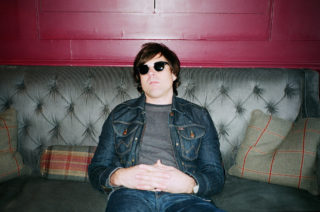
Adams declared a sort of retirement in 2009, leaving his then band The Cardinals and stating, “maybe we will play again sometime and maybe I will work my way back into some kind of music situation…but this is the time for me to step back now, to reel it in and I wish everyone peace and happiness.” This announcement was coupled with the fact that he had contracted Meniere’s disease, an inner-ear disease (a very disturbing illness, presenting patients with hearing loss, pressure in the ear, tinnitus, severe imbalance and vertigo). He wrote two books in the process, Infinity Blues and Hello Sunshine, and had an art exhibition of his paintings, but as many suspected he couldn’t remain away from his guitar.
While he has messed around with the metal genre and released hundreds of tracks on-line through his website, in 2010 he released his “first fully-realised sci-fi metal concept album”, ‘Orion’, followed by a Cardinals double LP entitled ‘III/IV’ recorded during 2006.
‘Ashes & Fire’ is Adams latest album, a record that shares the intimacies and delicacies of ‘Heartbreaker’ or ‘29’ with a polished and classic production more akin to ‘Jacksonville City Nights’, marking his thirteenth studio album in eleven years (probably fiftieth if you include the bundles of unreleased albums). Yet for the first time in his solo career, he is free from a record label. His previous label Lost Highway has been a source of constant pain and frustration for Adams. They famously rejected his career zenith and masterpiece ‘Love Is Hell’ and forced him to turn in something new, so, in some coke-fuelled sessions he and some friends bashed out ‘Rock N Roll’, a fun, throwaway guitar romp recorded in mere days that played homage to Adams’ musical heritage – he called the album “A joke. A record I had to make in order to release ‘Love Is Hell’.”
This latest record sees him self-releasing through his own label PAX-AM, so how is that working out for him?
“It’s really good,” he says, “because my departure from Lost Highway was not an easy one, but I left and there was nothing that they could say about it anymore; I just went back and I was able to get back a bunch of my unreleased records. I didn’t have any fun working with that company, they rejected more albums than they put out.
“It’s great to be running my own label and working with major label distribution (Columbia) who are in the business of making records and actually get the music I am making and want to put it out. If my former label didn’t want to release my records they should have been a gentleman and released me from my contract so I could have worked with people that did.”
So, with Adams owning his own unreleased material and free from Lost Highway, will this infamous box-set of unreleased albums now see the light of day?
“I think when people talked about this box-set in the past, I don’t think anybody understands that the box-set wasn’t my idea. It was basically a way for them [Lost Highway] to try and find a way to not pay me and put out those records and make them Universal Records property. Once they were released in that box-set it would have devalued each record for what it was originally intended to be. Plus, they would have owned the copyright for the box-set, so I would have never gotten paid for each individual album. They need to be properly released, as they should have been – with the artwork, the mastering and giving them the attention to detail they deserve – so, I wouldn’t put them in a box, I would release them as archive records with dates, so people know this album would have come out between this and this.”
With regards to his ear disease, Adams tells me, “I’ve basically been learning to deal with it, and I’ve got it down to a science now.” Crippling as it once was, though, it’s not why ‘Ashes & Fire’ sees him return to his solo acoustic setup.
“I can still play loud when I want, in my own time,” he says, “I just wasn’t having any fun in The Cardinals anymore. I needed some time off because I had been working non-stop since the symptoms started in probably about 2006.” [In actual fact it was 2005 – Adams cancelled a string of UK and European dates, including a John Peel Stage headline slot at Glastonbury Festival. His replacement was the infamous cocaine-riddled John Peel-bashing Bright Eyes show].
“Well, people never believed that I was really suffering from [Meniere’s disease],” he says, “which was really sad. I think they thought it was an excuse because I was taking drugs or something, which wasn’t true – I really, really struggled. My hearing has actually started to improve since I’ve actually started to deal with this disease, because I don’t have this roaring sound in my left ear anymore. But it was very real and I really went through it. It’s very hard to explain to people what it is – I guess you don’t know what it is unless you look it up – but it’s a very real thing. It makes people very very sick.”
Not a reaction to his Meniere’s disease then, but Adam’s first solo record since 2005’s ‘29’ has seen him found solace in working alone once again. “It’s really wonderful, actually,” he says. “What I’m doing right now is just writing on my own and going and playing on my own, that’s kind of how I wanna be. I think that’s enough for me.
“All in all, when I go back to pick songs that I want to do for a show, I find more than I can play in one night, so that’s a really positive thing. I’m finding more good than I am bad. It’s been interesting going back to songs that may have been too difficult to play with the band or maybe the dynamic wasn’t right – I really enjoy it.”
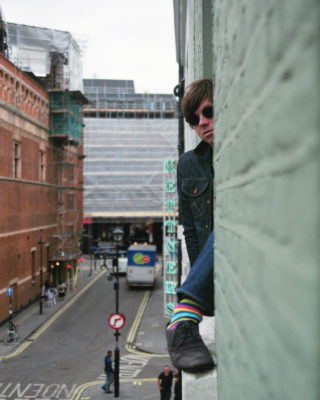
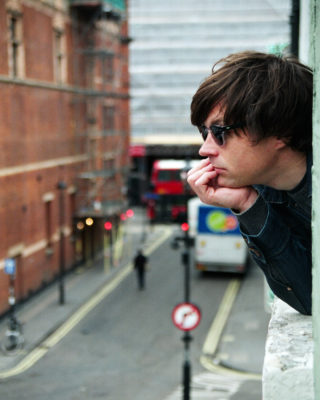
In his original blog post declaring his step back from music in 2009, Adams expressed a disdain and disillusionment with the music industry as a whole. I query if this was one of his reasons for having a rest. Again, it’s a ‘no’.
“Not really,” he says. “I mean, it would be very wrong for anybody to misunderstand or mischaracterise who I am based on blanket statements. I’m a human being; this is my job; there is a lot of variables, it’s not cut and dry, you know?”
How about your forays into the literature and art world – have they given you any further thoughts on the music industry, as a comparison?
“I don’t really think about the music industry – it doesn’t concern me. I don’t think about it as a whole. What would I want to be thinking about that for? I don’t have an opinion on it, I just know what my experiences on it are.” Of which it seems Ryan is a little hesitant to share. So, I ask him specifically about his relationship with the press, which has been up and down, to put it mildly. A long stony silence greets the question. “Erm…” A little more silence. “Yeah, again I don’t really think about it. I kind of let all this go. I don’t really have an opinion on what it’s like to talk about my records. You’re making kind of generalisations, so I don’t know what specifically you are talking about.”
At this point, Ryan is being somewhat evasive – a country mile from the man who boyishly asked us (as Brits) to explain what a ‘wanker’ was earlier. It seems he really is attempting to shed his past. “I just live my life moment to moment, day by day and maybe [in the past] I could have been talking about not wanting to talk about my personal life or whatever,” he says.
“I think there has been this exaggerated idea of who I was,” he continues. “I mean, everybody has a night or two or three in their twenties during rock’n’roll that are a little extreme, and I certainly had my times. But all the shows that went off great and the songs that sounded great, all the years of touring that were cool are never really mentioned. It’s just people talk about the one or two times they think that somebody is fucked up or wasted or whatever. But I don’t really hear any evidence of this stuff in my work. If somebody else does they can tell me what they hear, but I don’t think a drunken person writes the records I write.”
Adams’ prolificacy over the years is certainly testament to this argument; it would indeed be difficult for a severe drunk to write at such pace, quality and frequency. But I want to know if revisiting songs with drug-induced lyrics is an odd thing to do now he is so far away from this? Again, a silence rings out. “Erm… It would depend on what song you mean, and what do you mean by drug-induced lyrics?”
Well, you have publicly spoken about the dark time surrounding such records as ‘Love Is Hell’.
“Well, I think from your question you would have to assume I was in a dark place when I wrote the song.”
I point out that I am questioning based on previous (and numerous) quotes about this, such as one in Q magazine from 2003 that went, “I wanted to make a druggy suicide record; a record that really sounded like cracking up”, and in 2004 from UNCUT, “I was in a deep depression, and I wasn’t dealing with it. That was a really interesting place to be, and that’s where the record came from.”
Adams replies: “Yeah, absolutely. I’m answering you for the benefit of the people who read the article, not necessarily addressing you. I’m trying to make it more so people can understand what it really means. I think it’s important to state that there was no time in my life that I was ever sitting in some dark room, drooling from the side of my mouth in a chair, wasted on drugs for long amounts of time, only broken up by smoking a cigarette or writing a song or something.
“I think when talking about [things I’ve said] in the past, maybe my social skills were less adept. I think I didn’t realise that by describing me being in a dark place I was… I think what I meant to say was, ‘When I was writing, I wanted to express more things about sadness, grief or loss than I did about joy’. Maybe I was honing in on those reflections in my life. Many people do go through their lives completely miserable – I am not living that life. I have chosen to write about the darker sides of life sometimes and unrequited feelings that some people can have, as I seem to have been drawn to it in some weird way. I opened up about it, and it seemed special and important for me to do that.
“For the sake of not over-romanticising any more than I ever accidentally or maybe even purposely did, that just wasn’t my life. While I have certainly seen those sides of life and I have stepped through them, no person exists solely in that.”

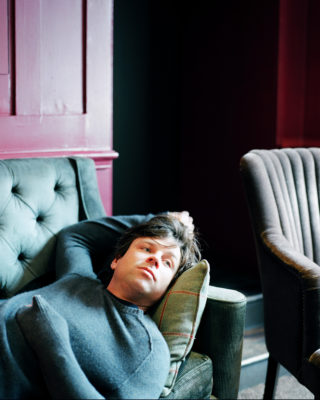
I’m beginning to understand why Adams once said that although he felt his music was very self-explanatory, he felt he spent ninety per cent of his time explaining it to people. Considering it a simple question with an expected answer, I ask if he still feels the same. Another long silence hangs, adding an ever-increasing edge to proceedings. “No. I don’t feel any way about it. This is what I do and there are certain parts of it that have to be done.”
It seems that Ryan is interested in simply and solely immersing himself in his current climate and current songs, moving on from his past, which is hardly surprising considering the several years of sobriety. When I asked him how true that may or may not be though, the longest silence yet slowly suspends. “No. I don’t wanna agree or disagree with any statements like that. I understand what you’re asking and I’m not trying to be difficult, I just don’t want to paint myself in any kind of ‘place’. I’m just being me, I don’t really consider these things; I just sort of do what I do”
In an attempt to change the subject, I finally broach the prospect of the rumoured Whiskeytown reunion.
“Whiskeytown will never get back together, ever. Never, ever. If it was going to happen it would have been last year, I discussed it with Caitlin and Skillet and neither was really interested in doing it. It makes sense for me to let it go, besides it would just be for money – they don’t care about those songs anymore than I do. We barley played them when we were together. So no, it will never happen and I’m quite happy about it.”
And then, just as time is called and we begin to part ways, Ryan professes to the benefits of ginger tea to me as he sweetly offers some advice for my cold and how to “feel better”. It’s as if the affable, unguarded Adams of an hour ago is back; the same Adams that roared with laughter as he told us how Kim Gordon thought the Metallica/Lou Reed album was “a miserable idea” and asked the waiting staff at Soho House “does my hair look rubbish?”.
Ryan’s defensive mood once in interview mode today seems to be not so much out of offence he takes to anything, or any anger or hostility he is holding on to; he frankly just seems tired of the spotlight and sick of people’s misconceptions, views and opinions on him, so by giving as little in terms of definitive and finalising statements, he can avoid this reoccurring. While he gives the impression of somebody behaving in an aloof and nonchalant manner, when it comes to certain subjects, I can’t help but feel he does really care what people think about him – not necessarily in a vain or narcissistic way, but as an extension of his natural gravitation towards sensitivity and emotion. Perhaps years spent in the public eye with multiple and notably outlandish interviews has left the undeniably matured Adams having to clean up his own mess somewhat and spend more time clarifying than giving further or new found insight.
Understandably – due to his wife’s famous stature – having paparazzi camera’s thrust in your face when you try and get groceries or go for a walk has perhaps resulted in a need to keep as much of himself to himself. And even if he won’t affirm such a thing today, his new record seems to find him in a content, stable and loving place, which is enriching to hear on both a sonic and personal level.
Ryan Adams has moved at leopard-like speed throughout his career and been almost chameleon-like in his ability to change musically, lyrically and – ultimately – personally. So him winding down is both expected and well advised. Second-guessing him would be, and has proven to be, impossible, which is what makes him such a relentlessly fascinating and intoxicating artist. He’s undeniably a musician that has frustrated as many people as he has mesmerised over the years, but like a drug himself, we keep coming back for more.